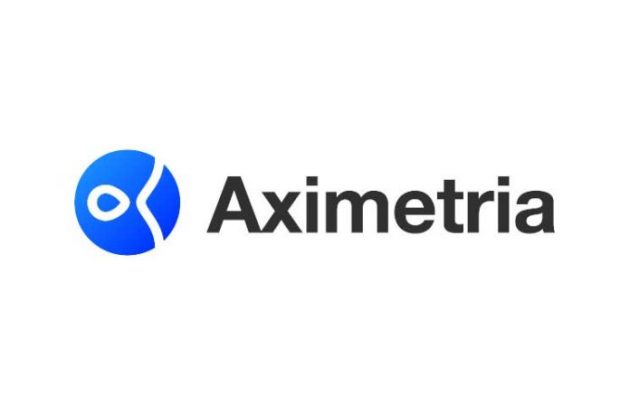
EU vs Swiss Policies Compared

In a major move last year, The European Parliament and the European Council took new strides towards EU anti-money laundering (AML) and combating the financing of terrorism (CFT) regulations with the Fifth AML Directive. The Fifth AML Directive popularly known as MLD5 which entered into force on 9 July 2018 expanded the scope to cover cryptocurrencies and virtual currencies. The EU member states were directed to implement these new rules into national law by 10 January 2020.
The MLD5 came into force just three years after implementing the MLD4 owing to the 2015 Paris terrorist attacks and 2016 Panama Papers leaks. In particular, it is a reaction to the increased use by terrorists of certain modern technology services as alternative financial systems.
The MLD5 defines ‘virtual currencies’ as a digital representation of value with some peculiar characteristics like
- They are neither issued nor guaranteed by a central bank or public authority
- They are not necessarily attached to a legally established currency
- They do not possess a legal status of currency or money but accepted by individuals or entities as a means of exchange and which can be transferred, stored and traded electronically.
The main points firms need to be aware in the MLRs include:
- Customer due diligence: New requirements are set forth in respect of customer due diligence. This includes additional identification and verification obligations, a requirement to collect proof of registration on beneficial ownership registers (where relevant) and a requirement to refresh customer due diligence in certain cases.
- Enhanced due diligence: This requires firms to apply enhanced due diligence to business relationships or transactions involving high risk third countries rather than instances where entities are established in high risk countries.
- Reporting requirement: This requires firms to report any discrepancies discovered between the information they hold and the information on the register for People with Significant Control.
- Group policies: This applies to firms which are part of a group to have policies requiring branches and subsidiaries to provide customer account and transaction information.
- Express Trusts: This requires UK express trusts and some non-EU express trusts to register with HMRC’s Trust Registration Service.
- Extended scope: Certain tax advisors and crypto asset exchanges and custodian wallet providers to become subject to the MLRs for the first time.
The Swiss financial regulators remain ahead of the curve even with the directive not applicable directly to Switzerland which is neither a member of the European Union nor the European Economic Area. Since 1 January 2016, the Financial Market Supervisory Authority (FINMA) has widened the scope of certain banking regulations relating to money transmitting and remitting services to cover virtual currencies.
Payment tokens and virtual currencies
On 16 February 2018 FINMA published its guidelines regarding the regulatory framework for initial coin offerings. The Swiss Anti-money Laundering Act considers banks, securities dealers and anyone that provides payment services or issues or manages a payment method as financial intermediaries to be considered under the act. This essentially confirmed the standard market practice that issuing payment tokens constitutes issuing a payment method. These transactions thus became subject to Swiss AML regulations, as long as the tokens can be transferred on a blockchain platform.
According to the guidelines, ‘payment tokens’ (synonymous with cryptocurrencies) are tokens which are intended to be used, now or in future, as a payment method for acquiring goods or services or as a means of transferring money or value.
Deposits and transfers
The current FINMA practice states, any exchange of cryptocurrency for fiat money or another cryptocurrency along with the offering of services to transfer payment tokens where the service provider maintains the private key (custody wallet provider) fall within the scope of Swiss AML regulations.
Payment tokens or cryptocurrencies of token holders in a wallet held with a wallet provider or operator may qualify as deposits which are similar to fiat currency and therefore be subject to banking regulations if:
- The token holder cannot dispose its payment tokens at any time without the involvement of the wallet provider or operator
- The wallet provider has a repayment obligation towards the token holder
- The payment tokens fall into the bankruptcy estate of the wallet provider or operator following the latter’s bankruptcy or similar insolvency procedure.
Therefore, providing custody wallet provider services requires a thorough analysis in each individual case regarding the potential applicability of Swiss banking regulations.
In general, Swiss AML regulations give rise to a range of due diligence requirements, including:
- The requirement to establish the identity of the beneficial owner
- The obligation either to affiliate with a self-regulatory organisation or to be subject directly to FINMA supervision.
EU and Swiss policies compared
The European Parliament and the European Council amended the scope of the Fifth AML Directive with a different objective than Singapore. It was done to prevent terrorist groups from transferring money into the EU financial system or within virtual currency networks by concealing transfers or by benefiting from a certain degree of anonymity on those platforms.
With this inclusion, the competent authorities are now able to monitor the use of virtual currencies for AML and CFT purposes. Such monitoring would provide a balanced and proportional approach, safeguarding technical advances and the high degree of transparency already attained in the field of alternative finance and social entrepreneurship in Switzerland.
Authors Credit: Alex Axelrod is the founding CEO of Aximetria, the crypto-centric mobile finance service for everyone that ensures fast, secure and easy payments, remittances and savings. Connect with Alex on LinkedIn https://ch.linkedin.com/in/axelrodAlex
Follow Aximetria on Twitter, LinkedIn, Facebook.